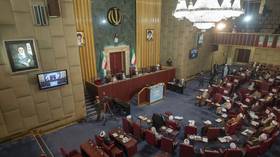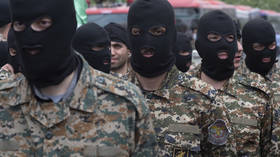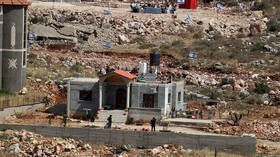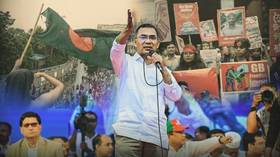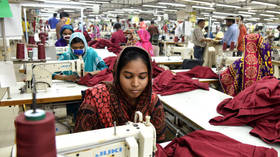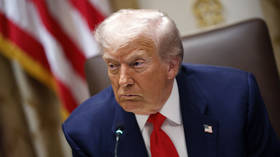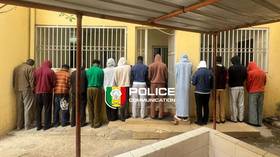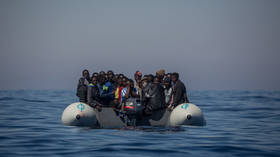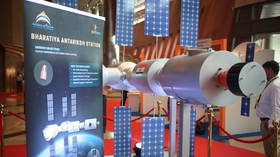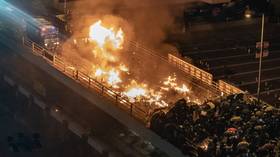Labeling Iran’s Revolutionary Guard as terrorists will hinder the fight against actual terrorism
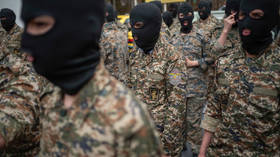
The European Parliament is urging the EU to designate Iran’s Islamic Revolutionary Guard Corps (IRGC) as a terrorist organization, a move which the UK may follow.
An amendment was voted into the European Parliament’s annual foreign-policy report, calling for the EU and its member states to designate the IRGC as a terrorist organization. The vote passed with 598 in favor to nine votes against, with 31 abstentions, in what is a non-binding amendment, meaning that the EU does not have to act on it, but will likely have to deal with mounting pressure to do so.
The stated reason for the damning designation is the Guard Corps’ alleged “terrorist activity, the repression of protesters and its supplying of drones to Russia.” The UK is also preparing to proscribe the IRGC as a terrorist group, with broadly the same justifications. However, one of London’s key reasons for resolving to do so has clearly been connected to Iran’s execution of its former deputy defense minister Alireza Akbari, who was convicted of spying for Britain’s intelligence agency, MI6. The UK government, in its official condemnations of the death sentence handed to Akbari, undermined the professionalism of Iran’s judiciary and omitted his conviction in an apparent attempt to frame him as a political martyr. London has also introduced 30 new sanctions against Tehran as a response.
The first problem with designating the IRGC as a terrorist organization, if the UK and the EU end up doing so, is that they will be applying the terrorist label to an official wing of the Iranian state’s armed forces. This would also include the Quds Force, which deals with foreign military and intelligence ventures, in addition to the volunteer paramilitary force known as the Basij. One of the reasons why the designation of a country’s armed forces as a terrorist group is so problematic is because it then opens up the floor to counter-measures from enemy states.
This weakens the very term ‘terrorism’ as a hyperpolarized tool with which to batter an enemy. This tool is then significantly devalued in its originally intended use – to designate actual terrorist groups like Islamic State (IS) or Al-Qaeda as common international threats.
Although the United Nations has no clear definition of terrorism, leaving this matter up to individual states to decide, it does routinely express concern over how certain definitions can impact human rights. The EU and UK’s definitions are very vague, yet share common themes in that they focus on non-state actors, which is an unspoken rule when it comes to defining what a terrorist group is. A terrorist organization, like Al-Qaeda or IS, cannot be accepted as a state for this reason, even if they manage to set up a state-like structure. At this moment, sanctions on the Taliban are still in place in Afghanistan, and at the United Nations the Taliban’s proposed representative has not been permitted to represent Kabul’s Islamic Emirate.
The Islamic Republic of Iran is, however, a longstanding member state of the United Nations, as a state it also has certain rights and characteristics. Under former US President Donald Trump the IRGC was designated as a terrorist organization by the US government, yet the legality of this has come into question, along with Washington’s maximum-pressure sanctions campaign that has been condemned by the International Court of Justice (ICJ). Iran, as well as Iraq, have both issued arrest warrants for Donald Trump and a number of others who participated in the extrajudicial assassination of Iran’s highest-ranking General, Qassem Soleimani. General Soleimani was killed without any legal precedence, after having helped build the ground force that helped defeat the so-called Islamic State in Iraq and Syria.
The EU and UK, in joining their US ally and defining the IRGC as a terrorist organization, would also go a step further than the West did during the Cold War, with their politicized slander of the Soviet Union. In the 1980’s the idea in the West emerged that Moscow was engaged in a form of state terrorism, whereby the USSR supported a worldwide network that was aimed at destabilizing Western democracies; this ‘terror network theory’ was popularized after having captured the imaginations of figures within the Reagan administration. Never did the West take the step, however, of designating the Soviet military as a terrorist organization.
Interestingly, the primary focus since September 11, 2001, in the post-Cold War setting, has been combating international Islamic fundamentalist militant groups, as opposed to secular groups during the Cold War. The well-known policy position held under the UK’s former Prime Minister, Margaret Thatcher, was that “we do not negotiate with terrorists,” a position that came about during Britain’s conflict with the IRA. Interestingly enough, Margaret Thatcher’s government openly backed the Mujahideen in Afghanistan, against its then-communist government. They would later go on to form both the Taliban and Al-Qaeda – two groups two which George W Bush Jr and Tony Blair would then apply the policy of not talking to terrorists during the so-called “war on terror.”
The problem now is that as the world heads into the territory of a second Cold War, a reality that is further developing by the day, the grounds are being laid for an even more extreme partisan take on serious issues like terrorism. The term ‘terrorism’ has always been politicized, but attaching it to the armed forces of internationally recognised states creates a new problem for any international coordination on fighting groups like Al-Qaeda.
This issue of who is and isn’t a terrorist has been developing for some time, with most debate recently focusing on the different political and military factions of the Palestinians. Western governments support the idea that a two-State solution must be reached to end the Palestine-Israel conflict, which should result in the formation of two democratic states side-by-side. However the EU, the UK and the US all consider every single Palestinian political party other than the mainstream branch of Fatah to be a terrorist organization, meaning that there can be no democratic outcome other than what the West desires, which puts a ‘soft lock’ on actual democracy.
In addition to this, designating the IRGC as a terrorist organization will have the effect opposite to its ostensible goals. It will make the Middle East less stable, not more so, and will also fail to punish Iran in any substantive way. Even with the imposition of new sanctions by the West, adding to the US-led maximum-pressure campaign, Tehran has been able to increase its oil and gas exports to a record high since the sanctions began. The West would be better off engaging with Tehran to come to an agreement and settle their differences, a step that the Kingdom of Saudi Arabia is currently attempting to take in a more mature manner than its Western allies. If the UK and the EU do go through with this decision, they should understand that everything they accuse Iran of doing can be pointed out about them also, except the West’s covert backing of what can be described as terrorist groups exceeds anything Iran does.
The statements, views and opinions expressed in this column are solely those of the author and do not necessarily represent those of RT.

